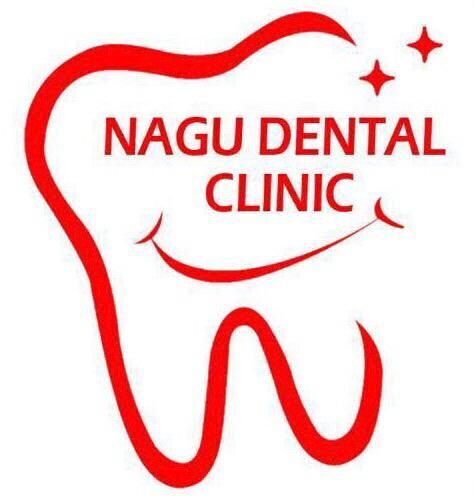Nagu Dental Clinic -
Answer for your dental concerns

Our doctors hope that our zest for dentistry inspires our patients to develop a commitment to their oral health.
Get to Know Our Mission
Email Address
drnagu@nagudental.com
Phone Number
+91 98454 98379
Head office
Nagu Dental Clinic, 1st Floor,16th Cross, 24th Main, JP Nagar, 5th Phase, Bangalore-560078
Get in Touch
If you have any concerns about your dental health please feel free to contact u!


#1 Best Dental Clinic
we won the best clinic award of 2020


FAQ
Why Is Visiting The Dentist So Important?
Visiting the dentist regularly will not only help keep your teeth and mouth healthy, but will also help keep the rest of your body healthy. Dental care is important because it:
- Helps prevent tooth decay
- Protects against periodontal (gum) disease, which can lead to tooth and bone loss
- Prevents bad breath – brushing, flossing, and seeing the dentist regularly will help reduce the amount of bacteria in your mouth that causes bad breath
- Gives you a more attractive smile and increases your self-confidence
- Helps keep teeth looking bright by preventing them from becoming stained by food, drinks, and tobacco
- Strengthens your teeth so that you can enjoy healthy, beautiful smiles for the rest of your life!
My Teeth Feel Fine. Do I Still Need To See A Dentist?
Your teeth may feel fine, but it’s still important to see the dentist regularly because problems can exist without you knowing. Your smile’s appearance is important, and your dentist can help keep your smile healthy and looking beautiful. With so many advances in dentistry, you no longer have to settle for stained, chipped, missing, or misshapen teeth. Today’s dentists offer many treatment choices that can help you smile with confidence, including:
- Professional teeth whitening
- Fillings that mimic the appearance of natural teeth
- Tooth replacement and full smile makeovers
What Should I Look For When Choosing The Right Dentist For Me?
Choosing a dentist who “clicks” with you and your family is important, and you may wish to consider several dentists before making your final decision. During your first visit, you should be able to determine whether the dentist is right for you. During your appointment, consider the following:
- Is the appointment schedule convenient?
- Is the office easy to get to and close by?
- Does the office appear to be clean and orderly?
- Was your medical and dental history recorded and placed in a permanent file?
- Does the dentist explain techniques for good oral health?
- Is information about cost presented to you before treatment is scheduled?
- Is your dentist a member of the ADA (American Dental Association)?
How Can I Take Care Of My Teeth Between Dental Checkups?
- ALWAYS remember to brush your teeth at least two times a day, and floss at least once!
- Make sure to use toothpaste that contains fluoride, and ask your dentist if you need a fluoride rinse. This will help prevent cavities.
- Avoid foods with a lot of sugar (sugar increases the amount of bacteria that grows in your mouth causing more plaque and possibly cavities) and avoid tobacco (this can stain your teeth, cause gum disease, and eventually lead to oral cancer).
- Don’t be afraid to brush your tongue! By brushing your tongue, you will remove food particles and reduce the amount of plaque-causing bacteria. Tongue brushing also helps keep your breath fresh.
- Be sure to schedule your routine checkup. It is recommended that you visit the dentist every six months.
What Is A Cavity?
A cavity is a small hole that forms inside the tooth because of tooth decay. Cavities are formed when plaque buildup on the outside of the tooth combines with sugars and starches in the food you eat. This produces an acid that can eat away the enamel on your tooth. If a cavity is left untreated, it can lead to more serious oral health problems. Cavities can be prevented by remembering to brush your teeth at least two times a day and floss between teeth at least once.
What Is A Filling?
A filling is a synthetic material that your dentist uses to fill a cavity after all of the tooth decay has been removed. Fillings do not generally hurt because your dentist will numb your mouth with an anesthetic. Fillings are made from a variety of different materials, including composites, gold, or ceramic. If you need a filling, be sure to talk to your doctor about what type is best for you and your teeth.
What Is Gum Disease?
Also known as periodontal disease, gum disease is mostly caused by plaque and bacteria buildup that is not treated in its early stage. Other causes of periodontal disease include tobacco use, teeth grinding, some medications, and genetics. Gingivitis is the beginning stage of gum disease, and, if detected, is treatable. Gingivitis left untreated may turn into gum disease. Advanced gum disease will lead to tooth and bone loss, and is a permanent condition. Brushing your teeth regularly and visiting the dentist every six months will help prevent gingivitis and more severe cases of periodontal disease. Common signs of gum disease:
- Red, irritated, bleeding, or swollen gums
- Chronic bad breath
- Loose teeth, or loss of teeth
- Extreme tooth sensitivity
- Receding gum line
- Abscessed teeth
Reach us through Google Map!



